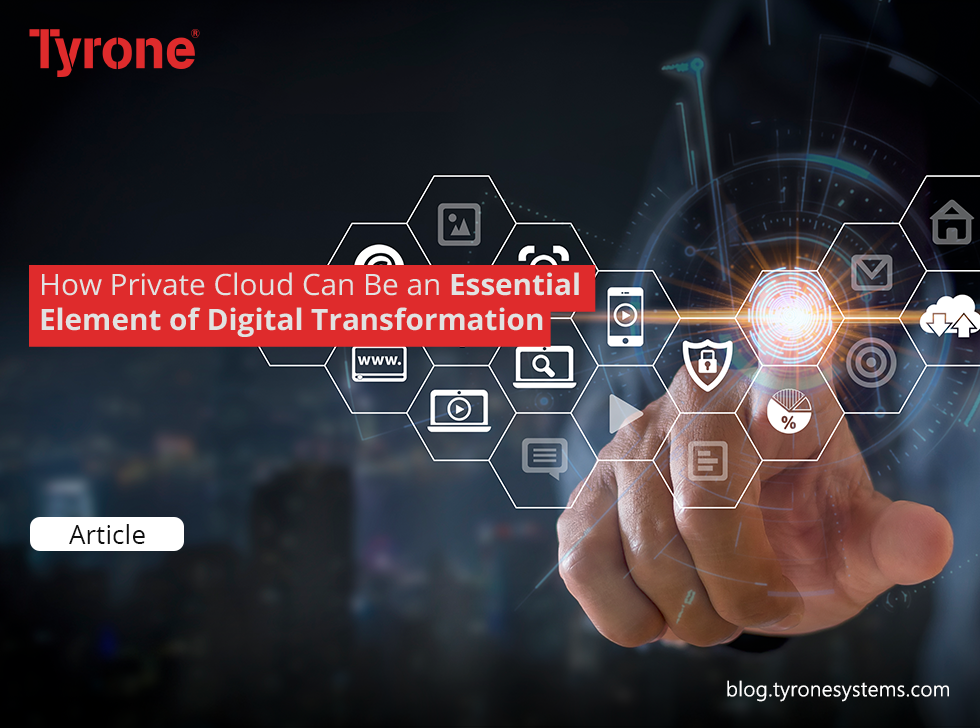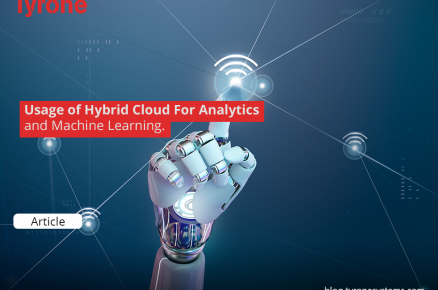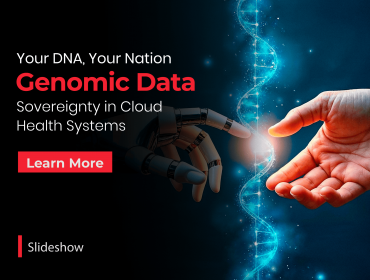As more businesses move their data offsite, cloud computing is evolving from cutting-edge technology to an industry standard. Understanding how apps function is crucial for companies looking to automate their operations and reap the benefits of private cloud computing. Organizations are forced to re-evaluate their objectives and rearrange how information is maintained and kept due to performance data and economics.
85% of enterprise decision-makers believe they have two years to integrate digital initiatives before falling behind their competitors (Source: Linkedin).
What exactly is the private cloud, and what are the advantages?
To begin with, private cloud solutions give increased security, flexibility, and cost management, making them highly advantageous for businesses with high customization requests and predictable workloads. The following are the elements that influence private cloud usage:
SaaS (Software-as-a-Service) evolves into SaE (Software-as-Everything)
The use of software to turn data centre pieces into “a-service” is having deep influence on the IT business. Nonetheless, we are presently witnessing a further shift in attitude. Automation becomes code solutions when it connects with (hyper)converged and composable infrastructure. Simultaneously, software-defined networks and storage solutions enable businesses to become nimble. The criteria listed above demonstrate that the private cloud is just as significant as public cloud development infrastructure in terms of assisting organizations in scaling.

The private cloud improves performance by utilizing modern computing capabilities
Complex computer tasks need massive resources. The strain imposed by rising demand has altered how the cloud functions. For example, constructing an airplane wing necessitates a particular level of computational horsepower that cannot be compared to the cloud capacity required to manage a complete warehouse’s inventory. Organizations should realize that every scenario is different and depends on graphics specs, memory, CPU, and bandwidth, depending on the application burden. Private cloud solutions have better handled data-intensive jobs, implying that they can also give a superior performance at a more affordable price.
Cloud Migration and Use Optimization
Serverless architecture, microservices, and container use are becoming widespread. Because of their enhanced resource utilization levels, they have become the new norm in numerous sectors. When the primary infrastructure is detached, the result is smooth cloud migration and optimum cloud utilization. The software-defined features are controlled more dynamically, allowing technologies to work smoothly and error-free in the private cloud. Cloud adoption will continue to grow at a compound annual growth rate (CAGR) of 16.3% between 2021 and 2026 (Source: Otava).

Flexible price models make the private cloud more convenient
Private cloud service solutions have cost-based pricing strategies that are customizable. Previously, expenses rose as a result of hardware leasing methods. However, with the inclusion of pay-as-you-go and on-demand features, the private cloud is gaining appeal as a flexible pricing structure. According to research, such architectures drive up to 46% of enterprises to transfer from the public to private cloud (Source: IBM). For businesses with apps with predictable demand, having a reasonably priced model saves money without jeopardizing business continuity.
Better regulations and data storage
Private cloud companies are better positioned in the market since they fulfill data residency requirements. As more nations enforce strict data usage policies, data residency is gradually becoming an essential component of many IT-related procedures. Therefore, enterprises are expected to maintain their data country-specific to comply with geo-specific legislation.
Other technological developments will follow in the footsteps of the private cloud. One of them is 5G technology. Indeed, because 5G networks provide reduced latency and higher speed, private cloud and edge computing usage are expected to benefit shortly.
Conclusion
The cloud is the foundation for the essential technology of our day. As even today the average person uses 36 cloud-based services every single day (Source: Techjury). The Internet of Things, Big Data, Machine Learning, Artificial Intelligence, Blockchain, and other emerging technologies all rely on cloud computing to reach their full potential. It’s time to move your business to the cloud and capitalize on this opportunity.

Cloud Services offered by Tyrone
Tyrone Cloud suite helps organizations meet modern-day challenges and unique needs of a data center. Our tailored-to-build approach while designing a cloud machine keeps sustainability, customer IT information flow, and architecture in mind.
We help you move your existing application to cloud computing platforms, build new cloud-native platforms, and assist you in every step of the cloud development life cycle.
The Tyrone Cloud Suite machines build the cloud architecture from the ground up with absolute ease. We also handhold any architectural changes concerning the existing infrastructure that might require modifications, OS and technology upgrades, and design revisions.
Tyrone Cloud Suite is flexible and tuned to your unique needs.












